Subscribe to the Newsletter
If you are interested in understanding how Traditional Chinese Medicine can improve your life sign up to my newsletter for the latest updates.
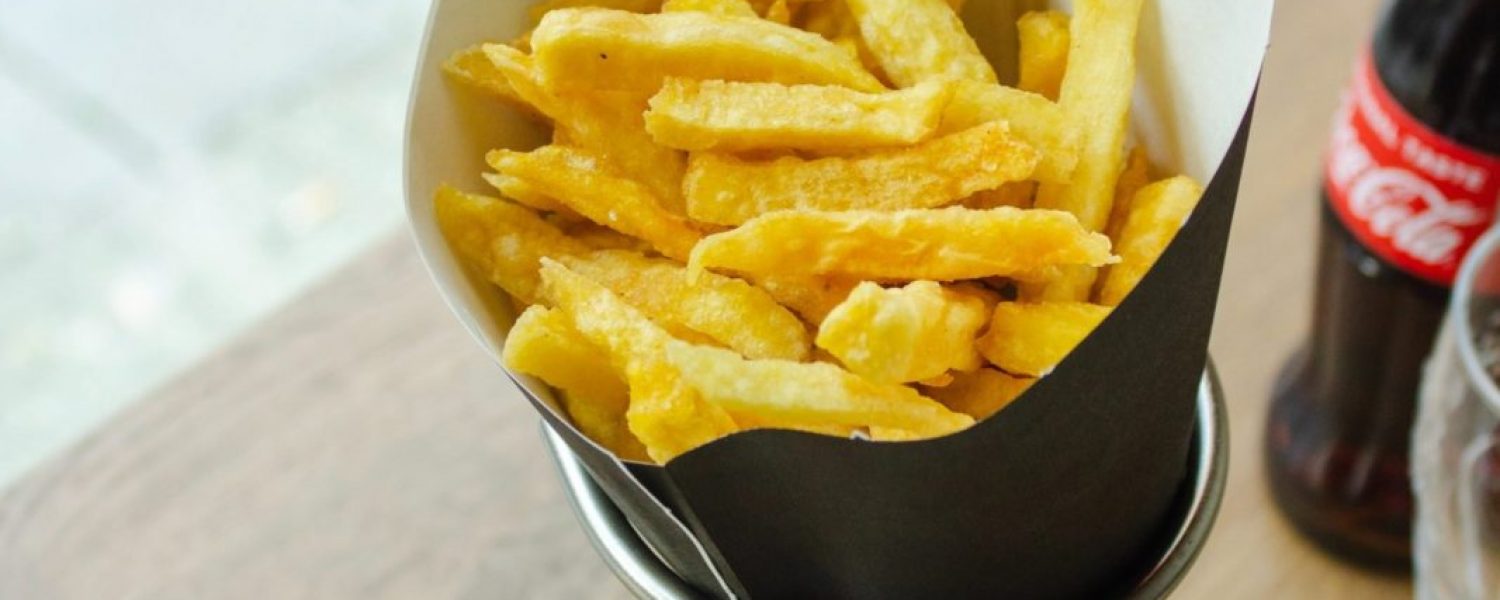
Lung Dry Phlegm tends to occur in older people, because it usually takes time to develop or acquire this syndrome.
BUT! If you often eat chips like in the picture above, your diet will be very heating, so you could produce dry-phlegm too – however young you are! Read more about hot foods here.
That’s because older people have probably had Phlegm for so long that it’s begun to dry out, become more sticky and difficult to budge.
Why has it dried out like this? Possibly because

Although it can affect young people, Yin deficiency is more common as you grow older.
Most people are becoming aware of the importance of good food. Time was when many doctors ignored diet, indeed discredited it as being in any way responsible for ill-health!
Even a few years ago, doctors in many eminent university medical faculties received almost no lectures on diet, vitamins, minerals, protein and so on.
They couldn’t see the point when their medicines could so easily suppress symptoms.
However, they are catching up, though practitioners of Chinese medicine think doctors and Western nutritionists still have a long way to go. A very important omission in their education is the energy of food. For more about this read Nutrition.
Food manufacturers want increasing profits. They found that by adding more fat, salt, sugar and spices to food they sold more.
Quite apart from the devastating effects these had on obesity and other health problems, for people with a tendency to Phlegm, fats and spices also produce Heat.
The foods most responsible for developing Phlegm are dairy foods like milk and butter, and fat and greasy foods, such as found in a multitude of fast-foods, instant foods, crisps, roasted meat products, and many Asian dishes such as curries.
Heat dries, and that’s what happens to Damp-Phlegm. As it dries, it becomes harder to shift and it becomes Dry-Phlegm. Just as a cook can ‘reduce’ liquids by gently boiling them for a time, making them thicker and more concentrated, so heat applied to Damp-Phlegm thickens and ‘dries’ it.
Just as that cook, if he forgets to check the cooking liquids, can end up with a glue-like congealed mess that is hard to clean (I speak from experience), so the Dry-Phlegm ‘sticks’ to the inside of the lungs and you get Lung Dry Phlegm.
Sticky Dry-Phlegm impedes the flow of oxygen, making the patient short of breath. Lacking oxygen, he has a pale complexion. With all that thick gunge in his chest, it feels heavy and oppressive.
For the same reason, lacking oxygen to aerate his blood and his brain, he gets confused and often dizzy.
Poor eating habits over a life-time, and even half a life-time, can contribute to Phlegm formation. For instance:
Of course, we all do this from time to time! But if you do it frequently – or always – then you will almost certainly end up with Phlegm. That leads on to diseases caused by Phlegm, of which this syndrome is one.
Underlying this is a weak Spleen, unable to clear things away, from having too much bad food foisted on it. (If you can’t be bothered to click on every link here, I understand! But you’ll be missing a huge amount of the depth and complexity of Chinese medicine. ‘Spleen’ means your digestion in general, but also a lot more than that.)
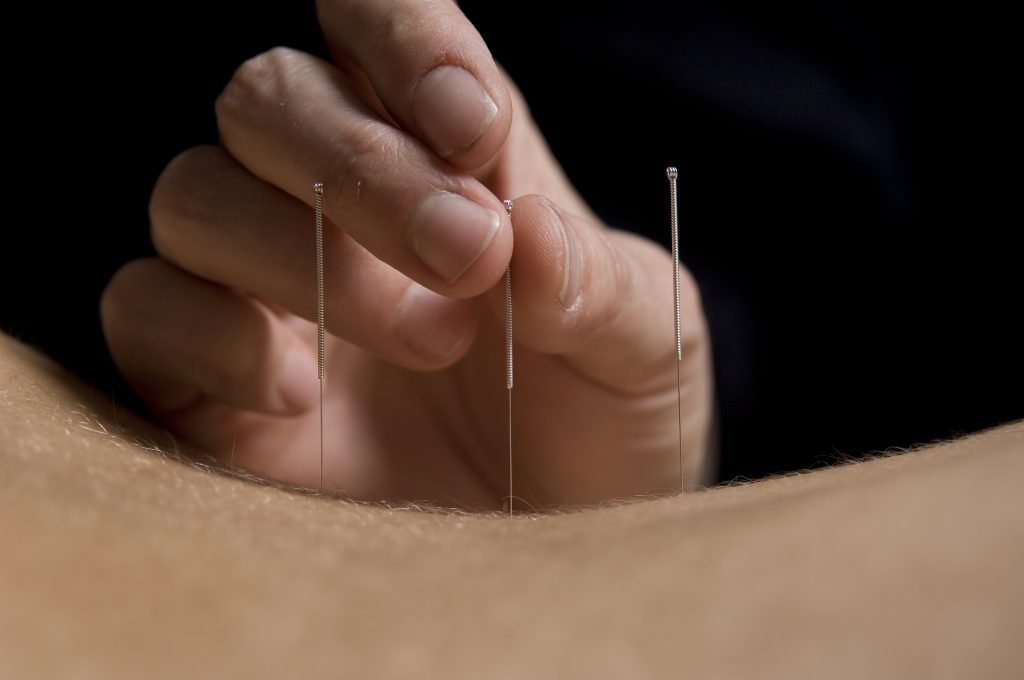
If Lung Dry Phlegm is your syndrome, your acupuncturist will aim to
If you’ve understood the above causes of Lung Dry Phlegm, you’ll realise you need to:

If possible, move around for a few minutes after eating. Later, between meals, go for a walk. No need for major exertion! Just potter about, or walk for ten minutes, not ambling or window-shopping, but not hurrying either. When you walk, stand up straight! Don’t stoop!
This helps your Lungs, encourages your Spleen and ensures that gravity helps food to descend.
It also exercises your Lungs. Exercise and the right nutrition and eating habits begin to clear Lung Dry Phlegm.
Exercises to keep your spine flexible would be good. This doesn’t mean you should try extreme yoga poses – or not yet! But bending and stretching movements should gently test your limits each time. Hula Hoop Anyone? (Or read appendix 10 in my book ” Qi Stagnation” for an easy, safe and wonderful way to keep your spine toned up, in just a couple of minutes a day.)
If you aren’t already Yin Deficient, you probably soon will be with the syndrome. Read the advice on Yin Deficiency.

Stay in Touch!
No spam, only notifications about new articles and updates.

Book a Video consultation if you want to know more about your symptoms
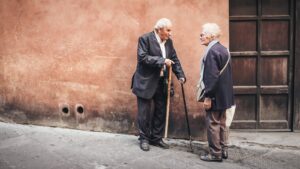
This Introductory Chinese medicine course introduces you to the amazing thinking behind this ancient medicine, now increasingly in demand.
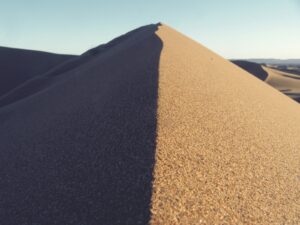
The Scottish College for Chinese medicine provides introductory courses for all, explaining Chinese medicine and its cultural background.
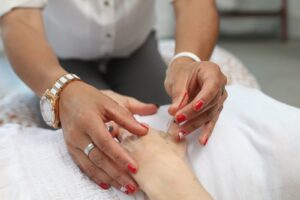
Master Tung’s acupuncture is a hidden treasure, lost to China but recovered in Taiwan from where it spread round the world.

Knee pain has five main causes. It’s certainly worth trying acupuncture before you resort to surgery!
Subscribe to the Newsletter
If you are interested in understanding how Traditional Chinese Medicine can improve your life sign up to my newsletter for the latest updates.
Subscribe to the Newsletter
If you are interested in understanding how Traditional Chinese Medicine can improve your life sign up to my newsletter for the latest updates.